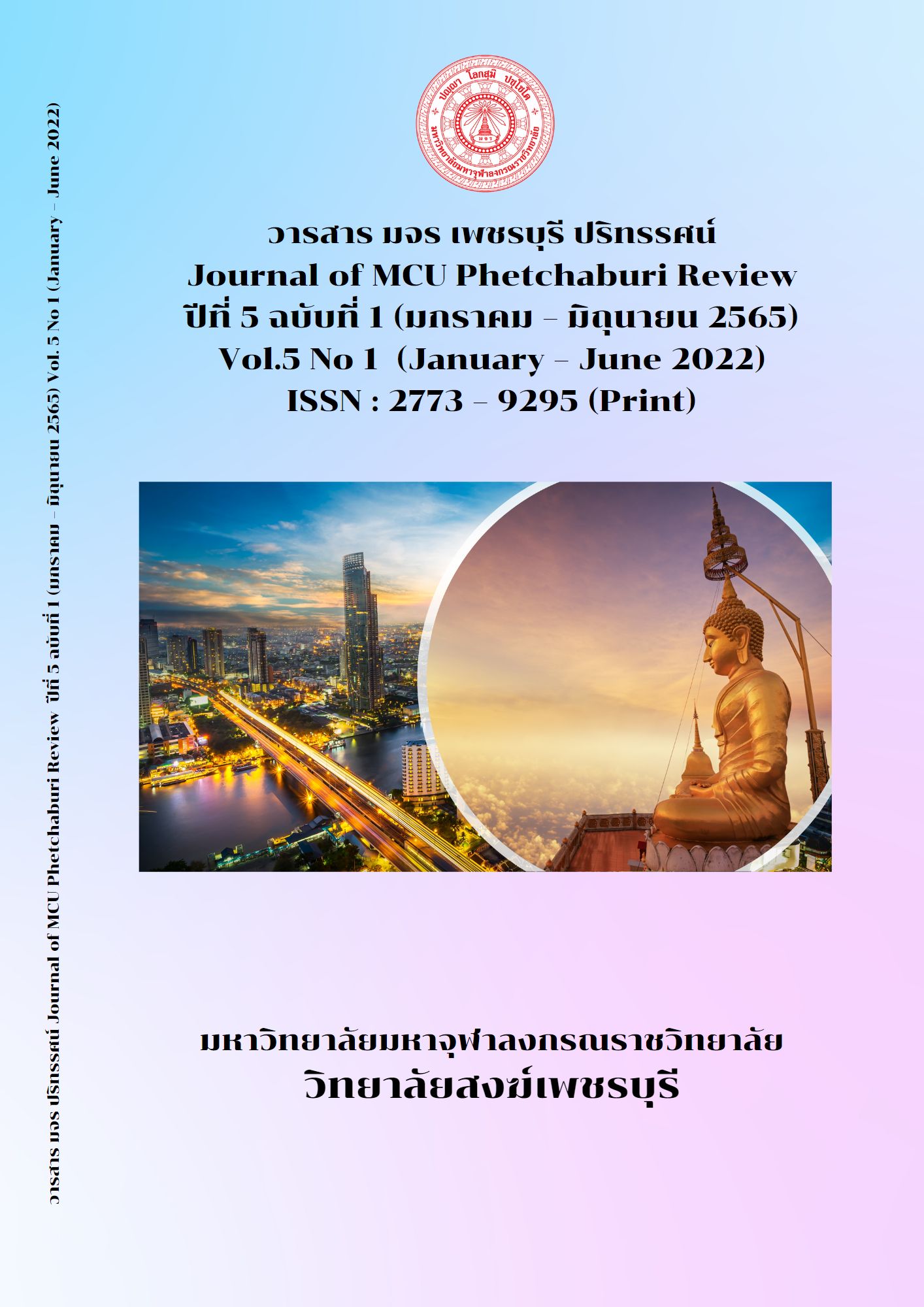THE MORALITY OF A LEADER ACCORDING TO BUDDHIST PRINCIPLES
Main Article Content
Abstract
The virtues of local leaders according to Buddhist principles were found: 1) Leaders are people who are extremely important in leading others to be happy. success in life as well as being a good example for others to follow no matter what caste the leader was born in. with any status, any occupation, whether or not he will hold a position as a leader One thing leaders have demonstrated is that the virtues that are conspicuous are acceptable and that can lead others to success both secularly and spiritually. in various fields to be shown or transmitted to relatives as well as offering to the King to implement The author tries to explain the principles of Buddhism as follows: 1. Secular Dharma is morality for those who live in the house, such as the good behavior of husband and wife towards each other. 2. Royal dharma: morality for government officials to practice in order to progress in their work and to be the principle of upholding in the performance of their duties as well as solving problems. which is a virtue that leaders have taught their children and relatives who will continue to serve in government service Verbal good, that person should not think badly of the person who is welcomed, etc. Therefore, the moral values of the leader in the Buddhist doctrine It can be seen that there must be good leadership qualities and maintain oneself in a variety of virtues, such as secularism, dharma, dharma, and sathunoratham as mentioned above.
Article Details

This work is licensed under a Creative Commons Attribution-NonCommercial-NoDerivatives 4.0 International License.
References
คณิน บุญสุวรรณ. (2548). ปทานุกรมศัพท์รัฐสภาและการเมืองไทย ฉบับสมบูรณ์. กรุงเทพมหานคร: ตถาตาพับลิเคชั่น.
ณรงค์ สินสวัสดิ์. (2537). ผู้นำการเมือง:แนวทางวิเคราะห์และกรณีศึกษา. กรุงเทพมหานคร: วัชรินทร์การพิมพ์.
ปรีชา ช้างขวัญยืน. (2540). ทรรศนะทางการเมืองของพระพุทธศาสนา. กรุงเทพมหานคร: โครงการตำรา คณะอักษรศาสตร์ จุฬาลงกรณ์มหาวิทยาลัย.
พิมพ์ชนก สืบพงษ์สังข์. (2542). การศึกษาเชิงวิเคราะห์เรื่องภาวะผู้นำในชาดก. ใน (วิทยานิพนธ์พุทธศาสตรมหาบัณฑิต สาขาวิชาพระพุทธศาสนา), บัณฑิตวิทยาลัย. มหาวิทยาลัยมหาจุฬาลงกรณราชวิทยาลัย.
วิเชียร วิทยอุดม. (2550). ภาวะผู้นำฉบับก้าวล้ำยุค (พิมพ์ครั้งที่ 4). กรุงเทพมหานคร: โรงพิมพ์ธีระฟิล์มและไซเท็ก.
สุชีพ ปุญญานุภาพ. (2539). พระไตรปิฎกสำหรับประชาชน (พิมพ์ครั้งที่ 16). กรุงเทพมหานคร: โรงพิมพ์มหามกุฎราชวิทยาลัย.


